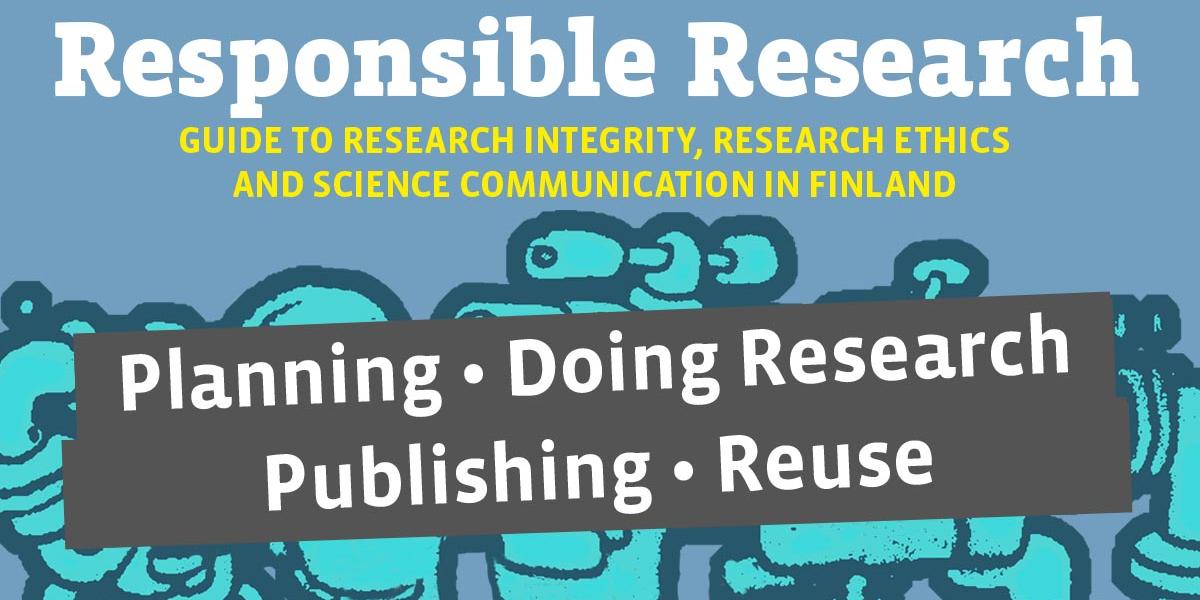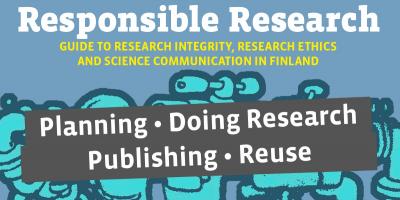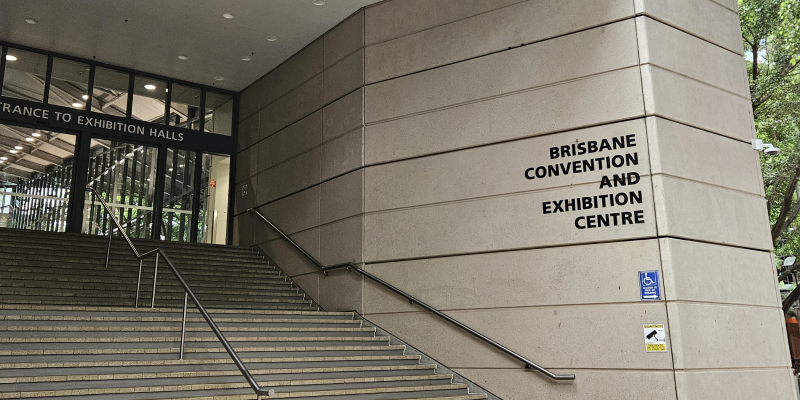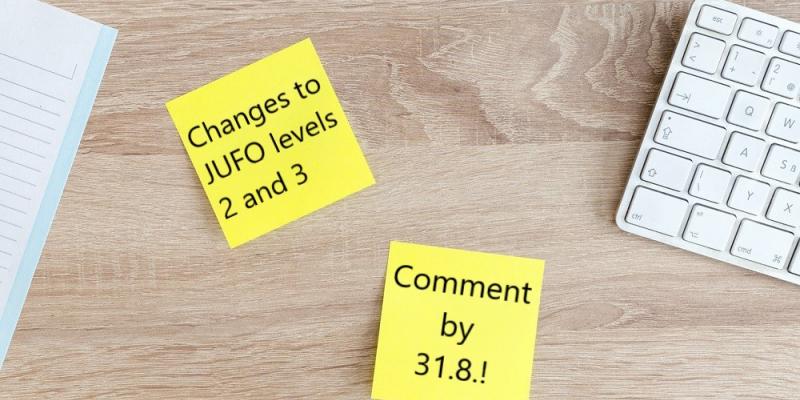
In academic publishing, it is common to assume there is a clear division of labour between researchers and language professionals. However, making a clear distinction between content and language quality is far from straightforward.
Many researchers publish their results in the linguistic resource most widely accessible for the academic community – in the academic lingua franca that, at the moment, is English. This means that in order to gain visibility in distinguished journals and conferences, they must communicate about their topic in English.
Communicating about research, its content and significance can be challenging for a researcher. The situation becomes even more challenging if the communication takes place in a foreign language. Researchers need not be discouraged. Globally speaking, most researchers must communicate in a foreign language and there are services researchers can use to support their writing.
Some researchers turn to language professionals. Some finance the use of language support services by themselves and some might be awarded such aid as part of the services provided by their local research institute. Most commonly such language support services include teaching of English-medium academic writing, as well as English translation and language editing services.
Self-financing researchers are free to choose the services they feel they need. Research institutes, however, may provide only some services to aid academic publication, such as teaching and language editing.
In teaching and in language editing, it is the researcher’s responsibility to produce the English-medium publication.
In both teaching and language editing, it is the researcher’s responsibility to produce the English-medium publication. While teaching is meant to support the researcher before and during the writing process, language editors come into the picture after the manuscript has been written.
The idea behind these services is that the process of English-medium writing can be broken down into parts and different actors can be assigned responsibilities for this production. This viewpoint presumes there is a clear division of labour between the researcher who produces content and the language professional who produces language quality. However, my research as well as prior studies on the subject challenge this view.
English-medium academic publication – multilingual and multidisciplinary collaboration
Many different actors take part in academic writing and especially in the production of academic publications in English. In the study of academic writing, these actors are called literacy brokers. Literacy brokers can be divided into two subcategories: academic brokers and language brokers.
Academic brokers are researcher colleagues, mentors and advisors, as well as journal peer reviewers and editors. Language brokers on the other hand are the language professionals who participate in the academic publication process.
The division of labour between academic content producers and language professionals may seem clear. Studies have nonetheless shown that responsibilities often become more or less clearly divided only after negotiation. For example, some researchers need more support in refining the language of their manuscript than others. A language professional may also have knowledge on the subject matter in some fields, which might make their involvement in the writing and publication process more extensive.
Every English-language academic publication is a unique combination of the multidisciplinary know-how of the content producers and the language professionals.
Negotiation is essential, given that every English-medium academic publication is a unique combination of the multidisciplinary know-how of the content producers and language professionals participating in the publication process. It is thus the responsibility of each participant to identify their own expertise, needs and potential to advance the publication of a study – as well as to make these known to the other actors to enable successful collaboration.
Distribution of responsibilities between the researcher and the language editor
In academic publishing, language editing is probably the most widely used language support service. Compared to teaching English-medium academic writing or translating a manuscript into English, language editing is a focused, fast, and fairly affordable procedure to ensure the quality of the language in the paper before submission. First, the researcher produces the manuscript in English and then authorises a language editor to comment on its linguistic form and fluency.
Typically, a researcher will seek out the services of a language professional voluntarily. Because of this, the role of the language professional justifies intervening in the researcher’s language use but also obligates them to take responsibility for the quality of the language.
Language editing, proofreading or revision?
The expectations of researchers for language editing and the services that language professionals actually provide often differ a great deal.
In the jungle of service providers, similar services are offered under a range of different terminology: proofreading, language editing and revision, as well as copyediting. The services can be ordered both locally and globally, and as the terminology for the support service is as confusing in any language, it is no wonder that a researcher might find it difficult to decide which of the services best suits their needs.
The abilities of single language editors to comment on manuscripts in different disciplines, even when operating under the same service provider, may vary a lot. Some language editors have specialised in certain fields, whereas some consider their services suitable for all fields.
The needs of individual researchers and even single manuscripts can differ. Sometimes only minor polishing is expected, and sometimes the language editor engages in extensive email correspondence with the researcher to get the word choices just right, so that both are satisfied with the result.
Identifying needs
Often the service provider defines what the service includes or offers a few options the client can choose from. But it is worth asking: do all researchers truly understand the differences between services or know what best suits their needs? Not all researchers know what it means if the agreement says the service includes a grammar check but excludes possible structural problems in the text. It may well be that despite the pre-defined service agreement, the researcher and the language editor find themselves at the (email-mediated) negotiating table, defining the content and limits of the service.
Researchers often seem to wish the language editor would contribute more extensively to the text than what would be appropriate or possible from the language editor's point of view.
Based on my research, it seems that researchers often wish the language editor would contribute more extensively to the text than what would be appropriate or possible from the language editor's point of view. On the other hand, more comprehensive interventions may also backfire. Researchers may at times be protective of their ideas or even jealous of their output and just want a quick polish from the language editor – perhaps reluctantly.
In defining the framework for language editing, the service agreement is at best a signpost and at worst a line drawn in water. In the beginning of a service relationship, language editors often test the waters by using different strategies to define the most suitable service concept for the client. Language editing, especially in the beginning of the client-supplier relationship, often contains both service provision and service design at the same time.
Based on prior research on the topic, we know that the language editing of English-medium texts mostly concentrates on individual sentence-level corrections, and that researchers are often satisfied with the service. But even this is not an adequate description of what language editing in practice covers, given that a single sentence might contain linguistic features that the language editor finds problematic but is not confident enough to tackle on their own.
It would be hasty to claim that responsibility over the content of the manuscript lies solely with the researcher, while the language editor could just rectify potential correctness issues without in any way affecting the content. In my doctoral thesis, I observe that the distributions of responsibility are, in fact, much more situated and fine-grained.
Content or form
The heart of the matter is that the production of content and the production of language quality are difficult, if not impossible to separate from one another. Individual word choices and sentence-internal structures are not trivial to how meaning is inscribed to the text. Colloquialisms are often considered unsuitable for the academic register. In addition, in English, an end-weighted information structure in a sentence is used to mark differences between new and old information, to ease sentence processing, and to prepare transitions to a new topic. Even the placement of a comma can change the meaning of the sentence. These are some of the sentence-level phenomena which language editors often intervene in.
The production of content and the production of language quality are difficult if not impossible to separate from one another.
It is worthwhile to ask whether the language editor alone is able to formulate these linguistic features in a way that serves the purposes of the content. Can the language editor make changes that preserve the author’s original thought, perhaps in a more refined form, especially if the discipline or topic is very specific or unfamiliar to the language editor? What if the researcher cannot, within the scope of their language skills, detect a change in meaning in their own manuscript?
The language editor needs to possess a certain sensitivity to their own limits and communicate them to the researcher. As no language editor can be an expert in the subject matter of every text they work with, the researcher cannot assume they can completely outsource the production of language quality to the language editor. Content and form that best serve the researcher’s original idea can be produced in collaboration with the language editor, but the researcher is always responsible for the final text. National and international authorship recommendations are based on the premise that typically only contributions defined as significant and made by the content producers are recognised when compiling the list of authors. The recognition of authorship brings along ethical responsibility for the content, which is why the language editor cannot be held accountable for the content if they have not been credited as an author for their contribution to the publication.
Responsibility for language quality
Proofreading tends to take place without major problems. Recognition of each other's roles, a long history of collaboration, shared academic interests, or at least partly shared linguistic capital usually ensure that the author and the language editor can work on the linguistic problems of the manuscript as a team.
However, the researcher and the language editor are not the only actors defining the language or overall quality of the manuscript in the academic publication process. The gatekeepers of the academic community also have a say in what the language of publications should be like. Views of what counts as a quality publication in terms of language and who should be responsible for the quality of the writing may at times clash.
The role of the language editor as part of the publication process might become fuzzy if, for instance, the researcher is pressed for time and commissions editing services for a premature draft, before its scientific contribution is clear to the researcher themself. In these scenarios, it might be difficult to discern whether peer reviewers' negative comments on the writing are actually caused by an unpolished argumentation style or language that deviates from the native-language norm.
Unveiling power structures
Some of the actors participating in academic publication have more power to define what language should be like. In the end, it is the gatekeepers of academic publication who get to decide which articles are published and which are not. Sometimes articles are rejected because of language problems, even after they have gone through language editing. This puts language editors in a professionally awkward situation. Most likely there are a range of factors that can lead to a situation such as the one described above, but there are some I would like to point out based on my own research.
Gatekeepers of academic publication, unlike language editors, are rarely language professionals. Therefore even legitimate negative feedback might be difficult for them to verbalize. It might be difficult for the peer reviewers and the editor-in-chief to define or distinguish the problems in the language of the manuscript. Feedback that only briefly states that the language is problematic or unclear, that the text needs language editing or is poorly written, or that the language needs work, does not help the author all that much. The risk in offering vague feedback is that the revisions made by the researcher and the language editor might not result in the outcome the peer reviewer was hoping for, and the vicious cycle begins again, wasting everyone’s time and resources.
It would be worthwhile to clarify and add transparency to the distribution of responsibilities between different actors in English-medium publication.
On the other hand, as a language professional the language editor generally understands what creates language problems in the manuscript, and has the ability to disentangle the root causes. What may become a problem, however, is that content and language quality are difficult to distinguish, and that people commonly assume such a separation can be made. According to my data, language editors are often well aware of their limits, and they use subtle cues to communicate them to the researcher. The language editor often marks sections that are difficult to understand to bring them to the author’s attention without directly intervening in the language use. If, however, the researcher does not have the ability or the time to solve the problems on their own or together with the language editor before submission, the problems might reappear in the peer review feedback. If the argumentation suffers from problems that affect the readability of the manuscript, there is very little anyone else but the author can do to resolve the issue.
In addition, the language editor is seldom the last person to make changes to the manuscript before submission. Researchers often make last-minute changes, and they do not always have time to arrange for new sections in the text to be checked by the language editor. Publication processes take a long time, and after months or even a year it might be difficult for the researcher and language editor to remember if the problematic sections in the text were originally language edited or not. If on top of this the peer review comments on the language are vague, the situation has the ingredients of a disaster.
For the benefit of all actors participating in academic publication it would be worthwhile to clarify and make the distribution of responsibilities between the different actors in English-medium publication more transparent. The actors taking part in the publication process could also critically examine their own roles and the predetermined divisions of labour. This would help all multidisciplinary and multilingual professionals to determine the scope and limits of their expertise and to act in responsible ways in the academic publication process.
Hanna-Mari Pienimäki is a doctoral student at the University of Helsinki. She is writing her doctoral thesis in the Language regulation in academia (LaRA) project funded by the Kone Foundation.
More information:
Burgess, S. & Lillis, T. M. (2013) The contribution of language professionals to academic publication: multiple roles to achieve common goals. In Matarese, V. (2013). Supporting research writing: Roles and challenges in multilingual settings. Oxford: Chandos Publishing.
Lillis, T. M. & Curry, M. J. (2010). Academic writing in a global context. Milton Park, Abingdon; N.Y.: Routledge.
Lillis, T. & Curry, M. J. (2015). The Politics of English, Language and Uptake: The Case of International Academic Journal Article Reviews. AILA Review, 28(1), p. 127. doi:10.1075/aila.28.06lil
Matarese, V. (2013). Supporting research writing: Roles and challenges in multilingual settings. Oxford: Chandos Publishing.
Pienimäki, H-M. (forthcoming) Language professionals as regulators of academic discourse. Department of Languages, University of Helsinki.
Solin, A. & Hynninen, N. (2018). Regulating the language of research writing: Disciplinary and institutional mechanisms. Language and Education, 32(6), pp. 494-510. doi:10.1080/09500782.2018.1511727
You might also be interested in
Tämä teos on lisensoitu Creative Commons Nimeä 4.0 Kansainvälinen -lisenssillä. Detta verk är licensierat under en Creative Commons Erkännande 4.0 Licens. This work is licensed under a Creative Commons Attribution 4.0 International license.


